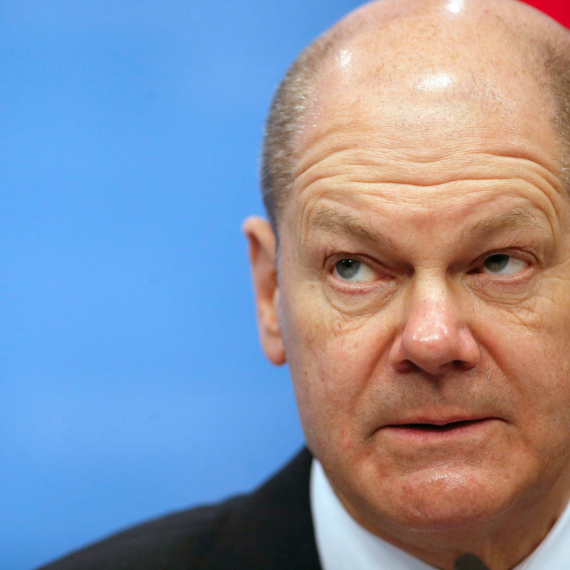Govt. seeks consensus on anti-discrimination law
The government has decided to in the next few days attempt to reach a consensus amongst differing opinions on the controversial anti-discrimination law.
Friday, 06.03.2009.
10:31

The government has decided to in the next few days attempt to reach a consensus amongst differing opinions on the controversial anti-discrimination law. B92 has learned that if a consensus is not reached during that time period, the proposed law will be retuned to parliament unchanged. Govt. seeks consensus on anti-discrimination law “These are very simple things. Important institutions in our country have asked for a debate on certain aspects and I’ll give the example of what we heard in the government on Thursday, and that is to try, in the next few days, to establish a complete consensus on this issue,” said Deputy Prime Minister Bozidar Djelic. “If that consensus is not reached, this draft which was rubber-stamped and sent to parliament would be the same that would be sent to parliament for adoption as early as next week,” he added. For six months – which is how long the debate lasted – no one from the Church made any remarks on the anti-discrimination law. That was done one the eve of parliament’s adoption of the text. The request was granted and none of those who proposed the law were informed of the decision. “I didn’t know about the decision to pull the law and whether we were changing one ordinary democratic procedure. Let us be told that in the future we will send laws first to the churches, and then enter them into regular procedure,” said Labor and Social Policy Minister Rasim Ljajic. According to Ivan Andric, opposition Liberal Democratic Party (LDP) MP, and Suzana Grubjesic, of the ruling G17 Plus, this law has existed for eight years and experienced a number of debates, and changes sought by the minister of religion were made. “That law experienced the widest possible public debate and if someone, at the eleventh hour before passing or debating the law in parliament, suddenly notices such a big fault in the law, excuse me, but where were you yesterday? Where were you the day before yesterday?” said Grubjesic. “No one can do that and we are very interested in knowing who did that, because that means that in this country there is some kind of invisible power which is, in a political sense, more powerful than the Serbian government, parliament, MPs, the prime minister and the president of the state,” said Andric. The Patriarchy of the Serbian Orthodox Church (SPC) confirmed that the Holy Synod, with the support of the archbishop of the Belgrade Roman Catholic Church, the Islamic Community of Serbia, the Evangelical Church and other religious societies had sent a letter with remarks on the proposed law to the speaker the Serbian parliament. Daily Blic writes that the withdrawing of the law was directly influenced by Bishop of Backa Irinej Bulovic and that the law was pulled during a government telephone session, a day before it was due to go before MPs. Adopting the anti-discrimination law is a prerequisite for Serbia’s accession to the Schengen white list.
Govt. seeks consensus on anti-discrimination law
“These are very simple things. Important institutions in our country have asked for a debate on certain aspects and I’ll give the example of what we heard in the government on Thursday, and that is to try, in the next few days, to establish a complete consensus on this issue,” said Deputy Prime Minister Božidar Đelić.“If that consensus is not reached, this draft which was rubber-stamped and sent to parliament would be the same that would be sent to parliament for adoption as early as next week,” he added.
For six months – which is how long the debate lasted – no one from the Church made any remarks on the anti-discrimination law. That was done one the eve of parliament’s adoption of the text. The request was granted and none of those who proposed the law were informed of the decision.
“I didn’t know about the decision to pull the law and whether we were changing one ordinary democratic procedure. Let us be told that in the future we will send laws first to the churches, and then enter them into regular procedure,” said Labor and Social Policy Minister Rasim Ljajić.
According to Ivan Andrić, opposition Liberal Democratic Party (LDP) MP, and Suzana Grubješić, of the ruling G17 Plus, this law has existed for eight years and experienced a number of debates, and changes sought by the minister of religion were made.
“That law experienced the widest possible public debate and if someone, at the eleventh hour before passing or debating the law in parliament, suddenly notices such a big fault in the law, excuse me, but where were you yesterday? Where were you the day before yesterday?” said Grubješić.
“No one can do that and we are very interested in knowing who did that, because that means that in this country there is some kind of invisible power which is, in a political sense, more powerful than the Serbian government, parliament, MPs, the prime minister and the president of the state,” said Andrić.
The Patriarchy of the Serbian Orthodox Church (SPC) confirmed that the Holy Synod, with the support of the archbishop of the Belgrade Roman Catholic Church, the Islamic Community of Serbia, the Evangelical Church and other religious societies had sent a letter with remarks on the proposed law to the speaker the Serbian parliament.
Daily Blic writes that the withdrawing of the law was directly influenced by Bishop of Bačka Irinej Bulović and that the law was pulled during a government telephone session, a day before it was due to go before MPs.
Adopting the anti-discrimination law is a prerequisite for Serbia’s accession to the Schengen white list.
















Komentari 4
Pogledaj komentare